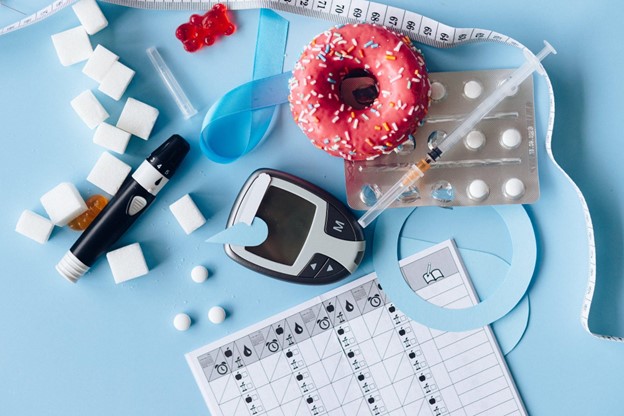Taking Control of Prediabetes for a Healthier Tomorrow
Prediabetes is a serious health condition that can pose long-term health risks, including an increased risk of developing type 2 diabetes, heart disease, and other chronic health conditions. However, with regular screenings, this condition can be identified and managed before it worsens. Lifestyle changes, diet modifications, and exercise routines play a vital role in the management of prediabetes.
Learn more about the prevalence, screening, and management of prediabetes in the guide below. With support from our healthcare team at Brevard Health Alliance (BHA), taking control of your prediabetes for a healthier tomorrow is possible.
Understanding Prediabetes
Prediabetes is a condition where a person has higher than normal blood sugars, but not quite high enough to be diagnosed as diabetes. According to the Centers for Disease Control and Prevention (CDC), more than one in every three Americans has prediabetes, however, most individuals do not know they have it. Studies estimate that nearly 80% of those with prediabetes are unaware of their condition.
Although prediabetes can affect people of any age, the risk for prediabetes is higher after age 35. As such, the American diabetes Association (ADA) recommends that diabetes screening start around this age.
While this condition affects both sexes, certain conditions can increase women’s likelihood of being pre-diabetic. Studies indicate that women who have Polycystic Ovarian Syndrome (PCOS), may be at a higher risk of prediabetes.
Symptoms and Diagnosis of Prediabetes
Most people with prediabetes do not experience any symptoms, which can make it difficult to identify without regular check-ups. Some people with this condition may begin to notice darkened areas of skin around their neck, armpits, or groin, however, most do not notice any symptoms until the condition progresses into type 2 diabetes.
Risk Factors for Prediabetes
With over 96 million American adults with prediabetes, regular check-ups and blood glucose monitoring are key to identification and diagnosis. Although this condition can affect anyone, people with specific risk factors may be at an increased risk. These risk factors include:
- Family history of diabetes
- Being overweight
- Consuming a diet high in sugar or a diet with high amounts of red meat
- Being of African-American, Hispanic, American Indian, or Asian American descent
- Women with PCOS
- Smoking
Here at BHA, we offer diabetes screenings to help you prevent the onset of type 2 diabetes. With the support of your healthcare team, regular screenings can help you catch prediabetes in its early stages.
Managing Prediabetes
Adopting healthy lifestyle practices can help bring your blood sugars back into normal ranges and prevent the condition from worsening into full-blown type 2 type diabetes. According to the Harvard T.H. Chan School of Public Health, about 9 in 10 cases of prediabetes can be avoided via lifestyle changes.
Making healthy food choices can go a long way in supporting your prediabetes treatment. Consuming whole foods that are low in fat and higher in fiber and avoiding sugary, processed foods can be helpful in managing blood sugars. In addition, exercising regularly is important.
Healthcare providers recommend aiming for at least 150 minutes of moderate to vigorous activity each week. prediabetes treatment might also include taking medication, especially if you’re at high risk for developing diabetes. Your Brevard Health Alliance primary care provider can help you develop a lifestyle modification plan to take control of and manage your prediabetes condition.
Regular Check-Ups and Monitoring
Since prediabetes often does not present with any symptoms, regular check-ups are important to ensure regular blood glucose monitoring. Your BHA doctor may order a fasting blood glucose test A1C test, which measures the average blood sugar over about three months.
Depending on your other health conditions and risk for developing type 2 diabetes, your doctor may recommend repeated A1C tests every one to two years to keep an eye on your blood sugars. During check-ups, it is also important to mention to your doctor if you are experiencing any symptoms of type 2 diabetes, such as:
- Excessive urination
- Increased thirst
- Blurred vision
- Increased hunger
- Unintended weight loss
Diabetes & Women
According to the U.S. Department of Health and Human Services, nearly 15 million women throughout the U.S. have diabetes, or 1 in every 9 women. Furthermore, women are at an increased risk of developing heart disease as a complication of diabetes.
With this in mind, it’s vital that women who are at risk for developing prediabetes or have been diagnosed with prediabetes make lifestyle changes that can help manage blood sugars and prevent the onset of type 2 diabetes.
Here at BHA, we’re here to help. We offer quality family medical care, including screening, management, and treatment of prediabetes. Call BHA at 321-361-4989 to learn more about how we can help you take control of your prediabetes for a healthier tomorrow.


















































































































































